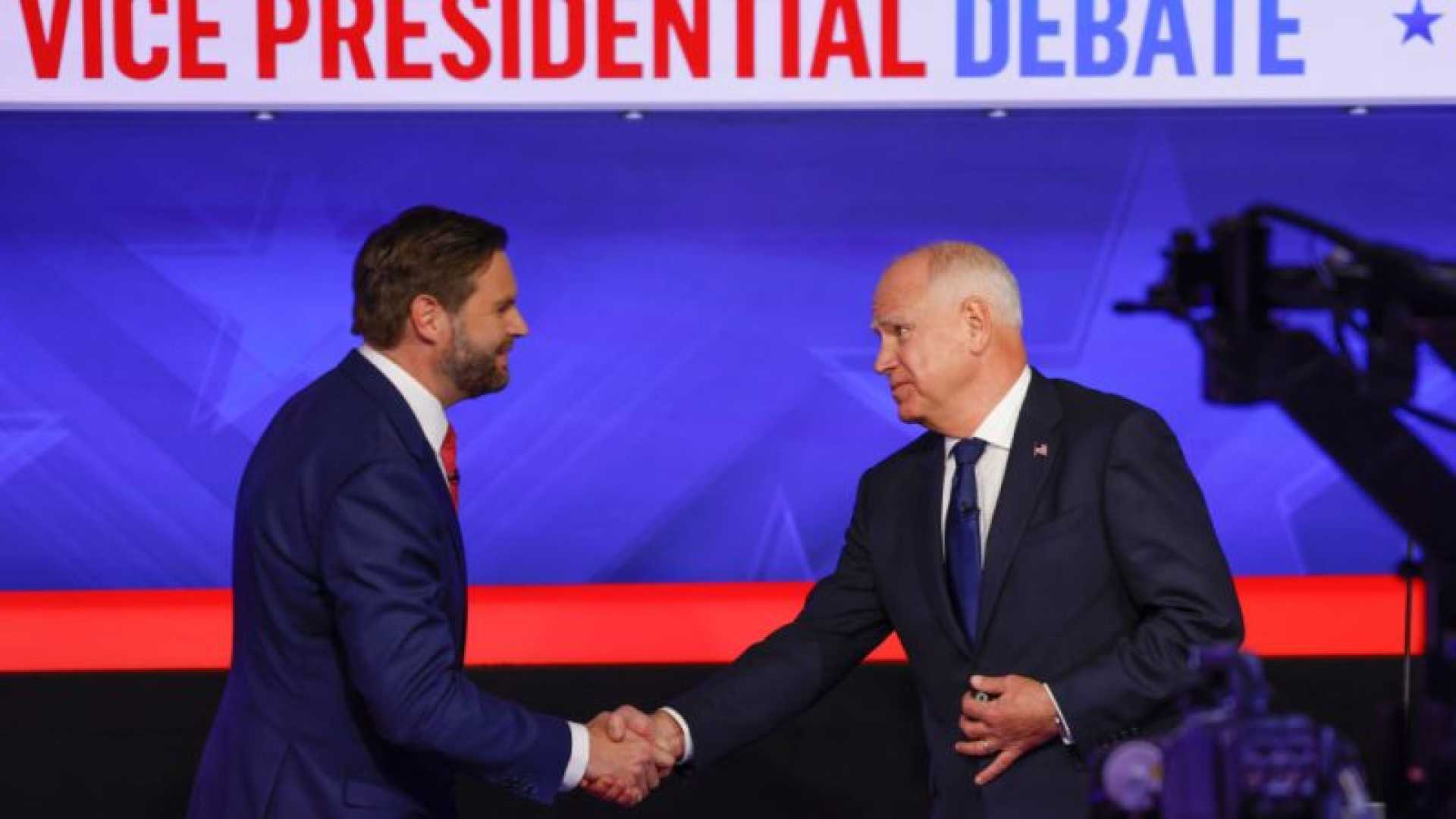Politics
Vice-Presidential Debate: Walz and Vance Clash on Immigration, Health, and Climate Policies

The vice-presidential debate on Tuesday night in New York City featured Minnesota Governor Tim Walz, a Democrat, and Ohio Senator JD Vance, a Republican. Both candidates sparred over key issues such as immigration, healthcare, and climate change. With the backdrop of Iran‘s attack on Israel and domestic challenges like a hurricane and potential port strike, the debate underscored the heightened stakes of the upcoming election.
The debate opened with the candidates addressing Iran’s ballistic missile attack on Israel. Walz promoted “steady leadership” under the Biden-Harris administration, while Vance advocated a “peace through strength” approach, promising a return to Trump-era policies. The debate saw a shift into more substantive policy discussions compared to previous cycles, reflecting current global tensions.
One of the more contentious topics was immigration. Vance criticized Vice-President Kamala Harris, inaccurately referring to her as “border czar” and accusing her of rolling back immigration restrictions, resulting in increased pressures on local resources. Walz countered by highlighting Trump’s failure to fully execute a border wall paid by Mexico, a promise from his first term.
Abortion policies also took center stage. Walz attacked Vance’s stance on leaving abortion laws to state discretion, arguing for uniform protection of women’s rights across the nation. Vance suggested economic policies that could reduce the need for abortions, but Walz maintained that these policies should not compromise women’s right to choose.
The candidates debated climate change against the backdrop of Hurricane Helene. Vance proposed boosting American manufacturing as a means to combat climate change, claiming the U.S. has the cleanest energy economy. Walz showcased the Biden administration’s renewable energy investments, marking them as steps towards becoming an energy superpower.
Healthcare was another prominent issue, with Walz critiquing Vance’s claim that Trump preserved the Affordable Care Act after trying to dismantle it. Walz emphasized his legislative experience in shaping health reforms, while Vance defended Republican strategies to make healthcare more efficient.
The focus also fell on the candidates’ running mates. While neither candidate directly attacked each other, much of their criticism was directed at Kamala Harris and Donald Trump, highlighting their central roles in the nation’s current political landscape. Vance continued to endorse Trump’s strong stance on various national policies, while Walz echoed Harris’ approach to addressing systemic issues like climate change and immigration.
The debate showed a clear divide in policy priorities and approaches between the two parties as the nation braces for the upcoming elections. As the campaign progresses, such discussions are likely to shape voter perspectives in the critical weeks leading up to Election Day.












